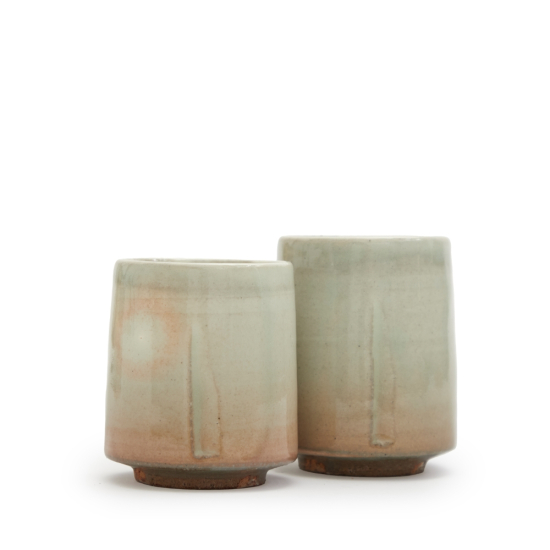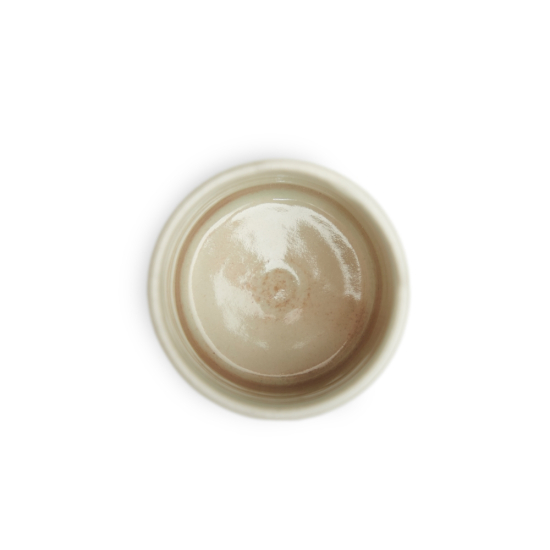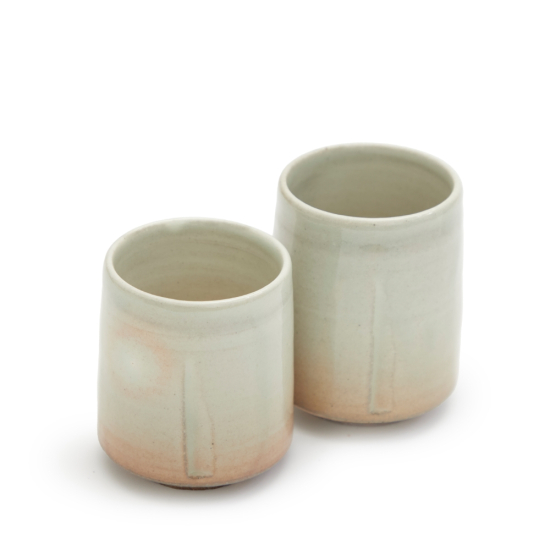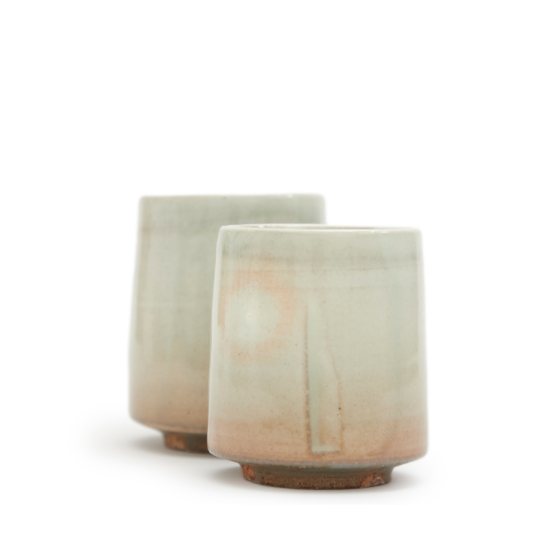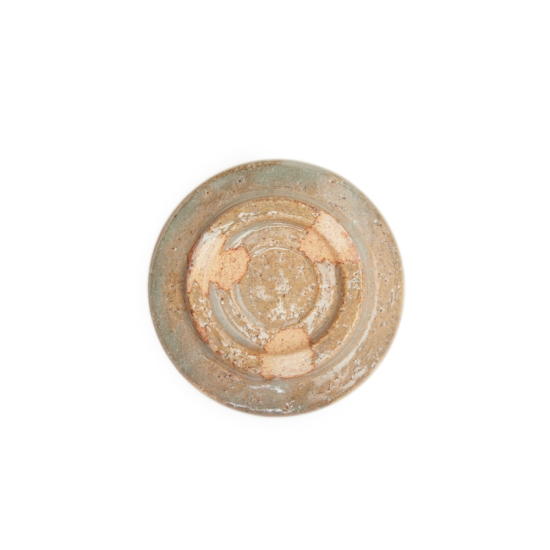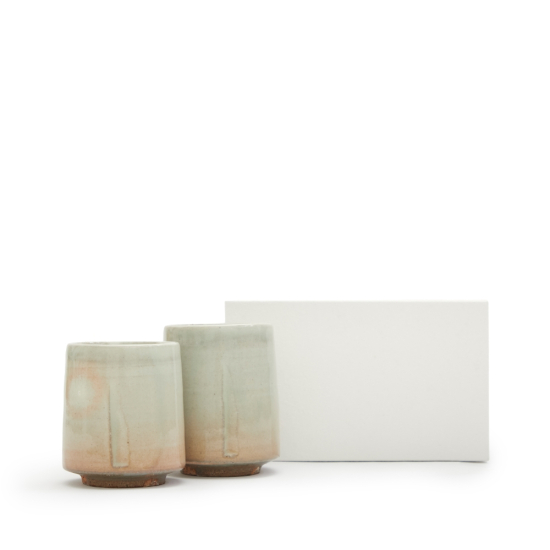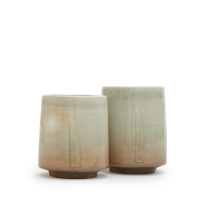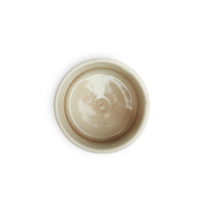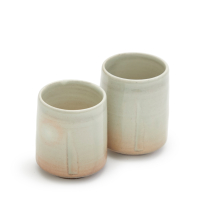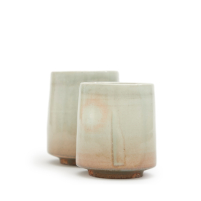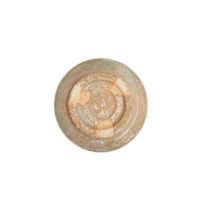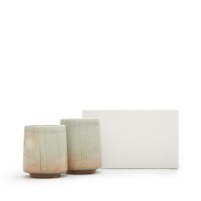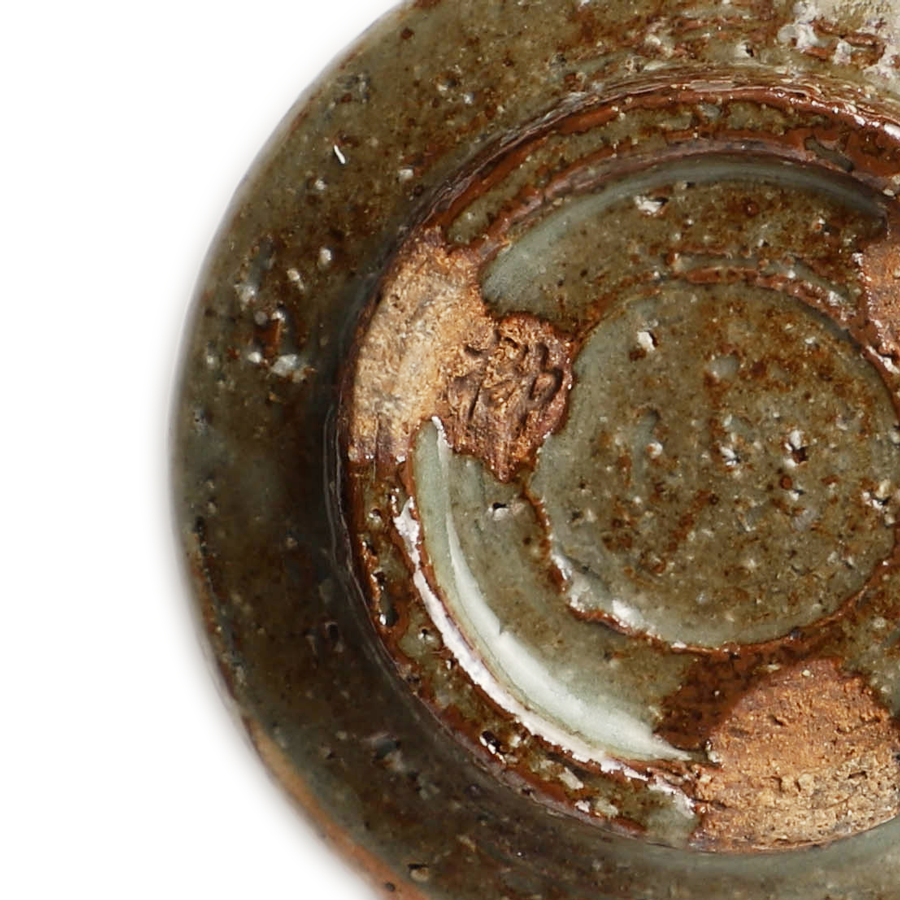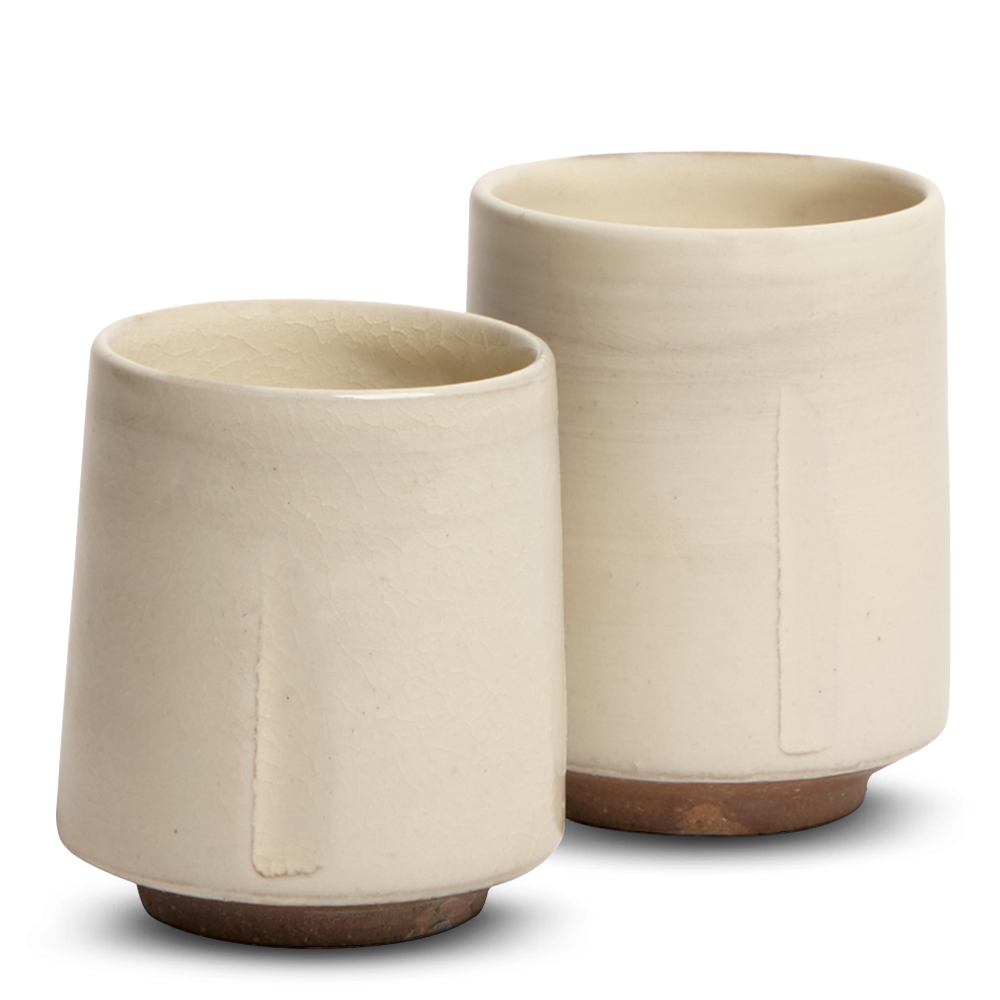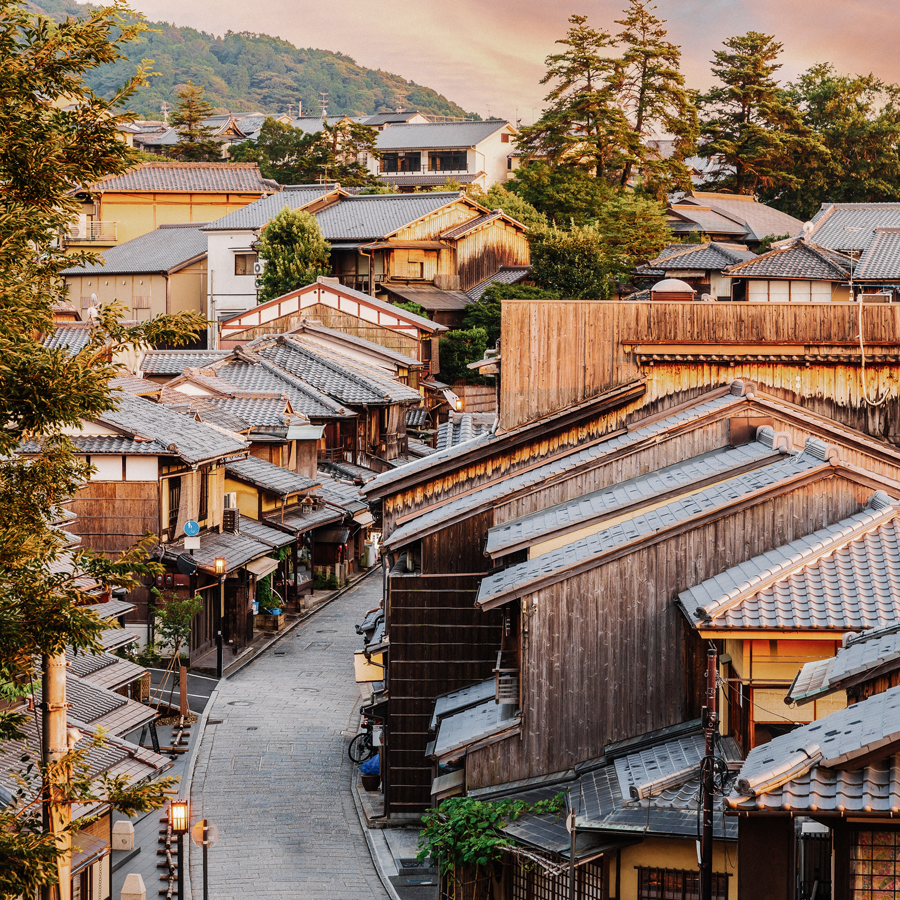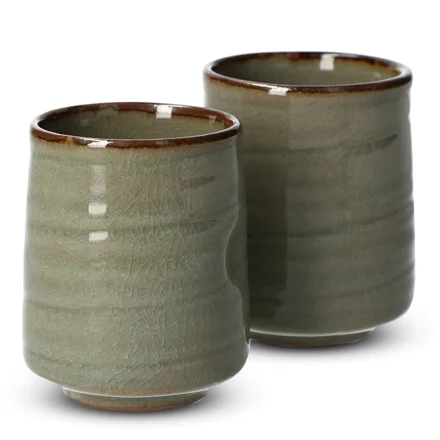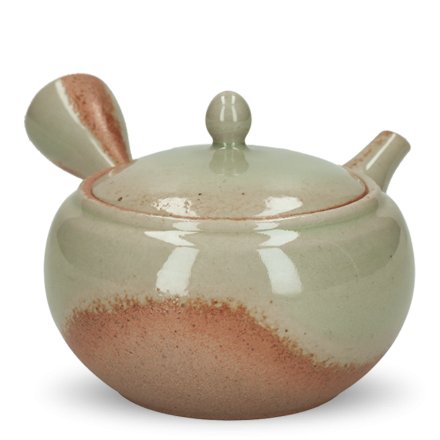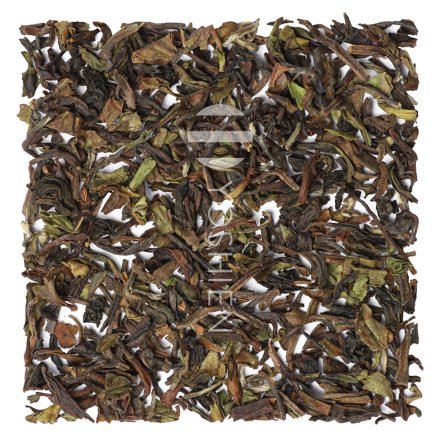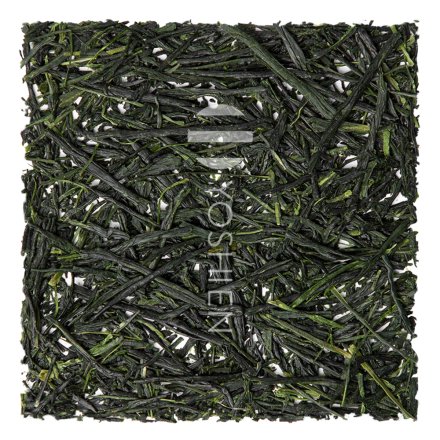The Kohiki style developed in Korea at the beginning of the Joseon dynasty (1392-1910) and is where a dark, iron-rich clay body is dipped into a white porcelain slip, over which after drying, a thin layer of translucent feldspar or ash glaze is applied. The name Kohiki means “ground powder” and alludes to the fine powdery coating of the glaze. The more Kohiki ware is used, the more it develops its character: the colour may grow a little darker and develop tiny crackles – these natural changes are appreciated as Keshiki (literally “scenery”) by pottery lovers.
Teacup Pair
Hon-Kohiki
Yanagi
SKU
1586
A pair of his and hers Yunomi teacups with a classic off-white Kohiki ash glaze. Handcrafted at the Yanagi kiln in Kyoto, these thick-walled, handle-free cups are particularly suited for teas brewed at higher temperatures, like Hojicha and Genmaicha. Perfect as wedding presents.
| Product | Teacup pair set |
| Ceramic Style | Kyo-yaki |
| Origin | Kyoto, Japan |
| Studio | Yanagi-gama 柳窯 |
| Volume | 175ml, 230ml |
| Dimensions | Ø7.1 x 8.5cm, Ø7.3 x 9.2cm |
| Weight | 150g, 160g |
| Material | Ceramic |
| Glaze | Kohiki (粉引) ash glaze |
| Artist's mark | Studio stamp on base |
| Packaging | Cardboard box |
Each piece is handmade and unique, therefore size and finish may vary slightly
In stock



